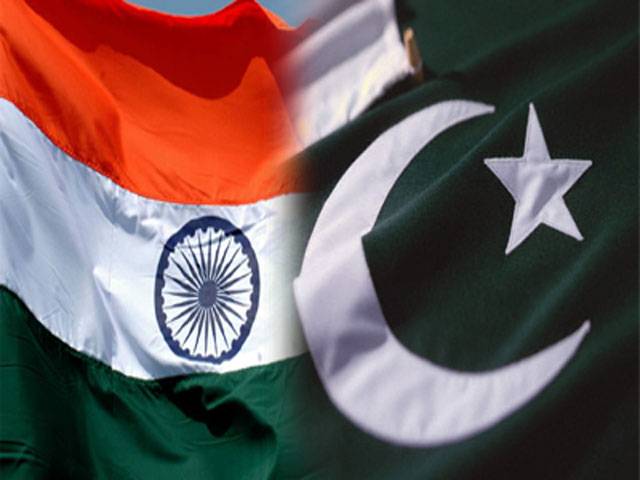UNITED NATIONS - Taking exception to Indian External Affairs Minister Sushma Swaraj's allegation about Pakistan abetting terrorism, a Pakistani diplomat drew attention of the international community to India's "brutal occupation and the most egregious form of state terrorism" in the Himalayan region.
"India’s attempts to deny its illegal occupation of Jammu and Kashmir are a travesty of history," Pakistani delegate Bilal Ahmad told the UN General Assembly, while speaking in right of reply.
"To perpetuate itsoccupation," he said, “India has deployed over seven hundred thousand security forces in Indian Occupied Jammu and Kashmir. Only the occupier would oppose the implementation of UN Security Council Resolutions that promised self-determination to the people of the disputed State of Jammu and Kashmir."
Bilal Ahmad, a counselor at the Pakistan Mission to the United Nations, said that over 100,000 Kashmiris have been killed, thousands of women widowed and raped, and children orphaned by this brutal occupation and the most egregious form of state terrorism by India, while pointing out that independent human rights organisations have confirmed the existence of over 6,000 unnamed mass graves in Indian Occupied Kashmir.
The Pakistani delegate called on India should withdraw its troops and let the Kashmiris decide their own fate in line with relevant Security Council resolutions. The issue could not be cast aside by empty rhetoric; it would always be on top of the list of any discussions between India and Pakistan. It was therefore disingenuous for India to ignore the issue; while proclaiming its willingness to talk, it had imposed preconditions it knew would never be acceptable to Pakistan.
"India’s insistence on limiting the talks to a one point agenda proves that it is neither interested nor serious in engaging in a genuine dialogue," Bilal Ahmed told the 193-mmber Assembly. Using the terrorism bogey, India had not only stalled the bilateral dialogue but also vitiated the overall atmosphere between the two countries.
Pakistan’s commitment, and its role and sacrifice in the fight against terrorism, including the success of our ongoing counter-terrorism operations, have been acknowledged and praised by the entire international community, he said.
The entire world is also united in unequivocally condemning terrorism, except India, the Pakistani delegate pointed out. "This country is insensitive to the tragic human dimension of terrorism. India seems to suggest that acts of terrorism in Pakistan are acceptable. By doing so, India in fact seeks to mask its own support and sponsorship of terrorism in Pakistan."
Bilal Ahmad accused India of failing to bring to justice perpetrators of terrorism against civilians in the 2007 Samjhauta Express bombings.
He also said that Pakistan had handed over dossiers to UN Secretary General Ban Ki-moon containing “evidence” of Indian involvement in terrorism in the country and links of its security agencies with the Tehrik-e-Taliban in Federally Administered Tribal Areas.
“The dossiers include details of Indian interference and support for terrorism in Balochistan and Karachi as well as its security and intelligence agencies link with the Tehrik-e Taliban Pakistan especially in Fata,” he said.
Earlier, while rejecting Prime Minister Muhammad Nawaz Sharif's four-point formula for peace, Indian External Affairs Minister Swaraj had asserted that it is ready to discuss all issues if the neighbouring country addresses “just one” point of ending terrorism emanating from there, as she proposed National Security Advisor-level talks to address the problem.
Swaraj had also referred to the perpetrators of 26/11 attacks who, she said, continue to roam freely in Pakistan and pressed the world community to ensure that countries which provide finances, safe havens and arms to terrorists “pay a heavy price”. She also accused Pakistan of carrying out cross-border attacks.
"We all know that these attacks are meant to destabilise India and legitimise Pakistan’s illegal occupation of parts of the Indian State of Jammu and Kashmir and its claim on the rest of it," the Indian minister added.
Friday, April 19, 2024
Let Kashmiris decide future
| Pakistan says India killing peace prospects by limiting talks to one-point agenda

SC suspends ECP’s re-polling order in PP-51
April 19, 2024
Court approves plea bargain of Parvez Elahi’s co-accused
April 19, 2024
Zardari creates another parliamentary record
April 19, 2024
KP politicians, civil society laud President’s address
April 19, 2024
A Tense Neighbourhood
April 19, 2024
Dubai Underwater
April 19, 2024
X Debate Continues
April 19, 2024
Hepatitis Challenge
April 18, 2024
IMF Predictions
April 18, 2024
Kite tragedy
April 19, 2024
Discipline dilemma
April 19, 2024
Urgent plea
April 19, 2024
Justice denied
April 18, 2024
AI dilemmas unveiled
April 18, 2024
ePaper - Nawaiwaqt
Advertisement
Nawaiwaqt Group | Copyright © 2024





